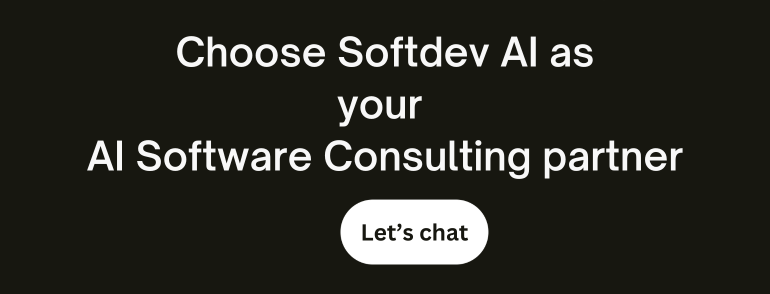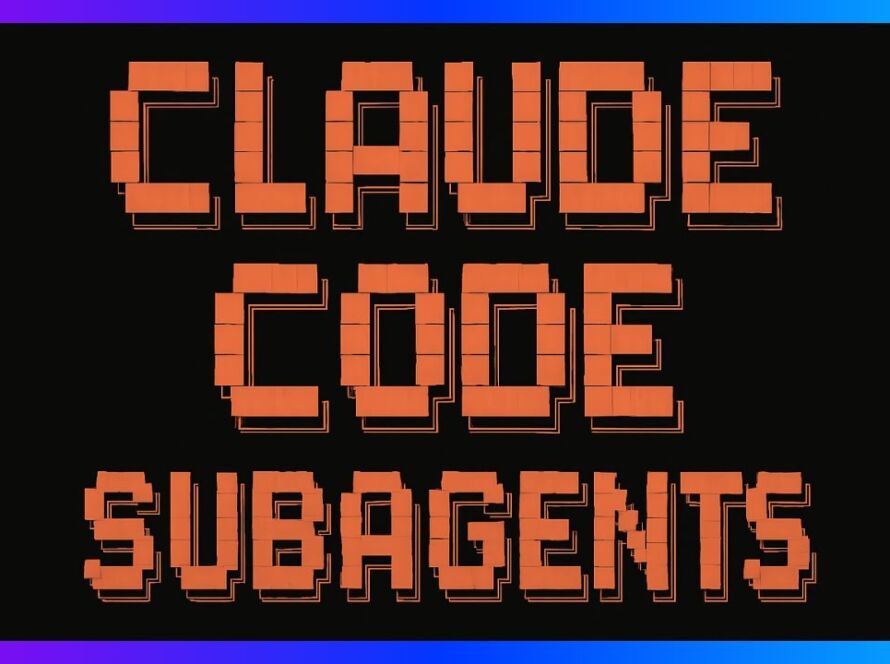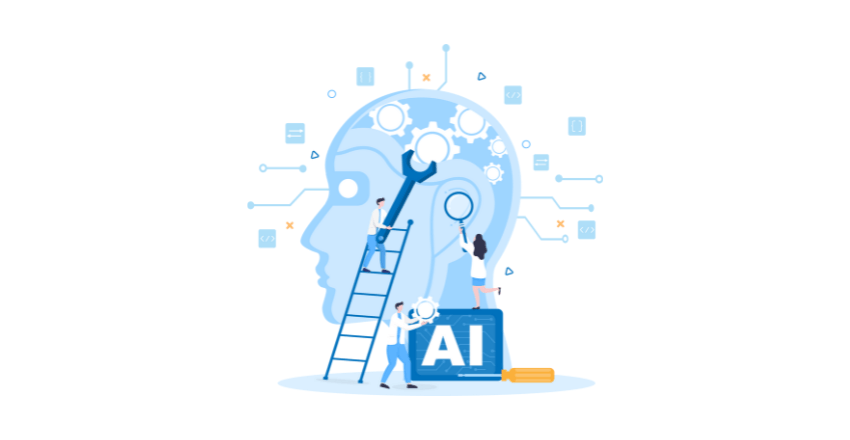AI-generated code is changing how developers build software. Tools like GitHub Copilot, ChatGPT, and Tabnine can write code, suggest fixes, and even help with debugging. But is AI-generated code always a good thing? While AI speeds up development, it also comes with risks, like security issues and unreliable outputs.
How AI-Generated Code Works

AI-generated code comes from machine learning models trained on massive amounts of existing code. These models learn patterns, best practices, and coding structures from open-source projects, online repositories, and programming tutorials. When a developer inputs a prompt such as a question or an incomplete function the AI predicts and generates code that fits the request.
Popular AI Coding Tools
Several AI-powered tools help developers write code faster and more efficiently. Some of the most popular ones include:
- GitHub Copilot – Suggests code completions and entire functions based on natural language prompts.
- ChatGPT – Generates code snippets, explains programming concepts, and helps with debugging.
- Tabnine – Provides AI-powered autocomplete suggestions for various programming languages.
- Amazon CodeWhisperer – Offers AI-powered coding assistance, optimized for cloud development.
These tools speed up the coding process, but they aren’t perfect. Developers must review AI-generated code to ensure accuracy and security.
Benefits of AI-Generated Code

AI-generated code is transforming software development by making it faster, smarter, and more efficient. Whether you’re a beginner learning to code or an experienced developer working on complex projects, AI can help streamline your workflow. Below, we break down the key benefits of using AI-generated code and how each one can improve your development process.
1. Faster Development: Spend More Time Solving Problems, Less Time on Repetitive Tasks
One of the biggest advantages of AI-generated code is speed. AI tools can write entire functions, generate boilerplate code, and suggest fixes in seconds. This means developers don’t have to waste time on repetitive coding tasks like setting up API calls, writing standard SQL queries, or formatting JSON responses.
How This Helps You:
- Reduces manual work – AI handles routine coding, so you can focus on more important tasks.
- Speeds up project timelines – Faster coding means quicker releases and more time for testing and improvement.
- Enhances creativity – With AI taking care of the repetitive parts, developers can focus on designing better features and solving complex problems.
2. Fewer Errors (Sometimes): Catch Mistakes Before They Cause Problems
AI-powered coding tools can detect syntax errors, highlight inefficient code, and even flag security risks before they make it into production. While AI isn’t perfect, it can act as a second set of eyes, helping developers catch mistakes early.
How This Helps You:
- Reduces debugging time – AI-generated suggestions can fix errors before they slow you down.
- Improves code quality – By identifying potential issues, AI helps developers write cleaner, more efficient code.
- Enhances security – Some AI tools can detect vulnerabilities in your code, helping prevent security breaches.
However, AI-generated code isn’t always 100% correct. It’s important to test AI-generated suggestions and verify their accuracy before using them in production.
3. Improved Learning for Beginners: Get Instant Help and Learn Faster
For new programmers, AI tools act like an on-demand coding tutor. Instead of struggling to understand a concept, beginners can ask AI-powered assistants for explanations, examples, and even step-by-step guidance on how to write code.
How This Helps You:
- Provides instant answers – No need to search through documentation or forums for help.
- Shows real-world examples – AI can generate code snippets to demonstrate how a concept works.
- Encourages hands-on learning – By experimenting with AI-generated code, beginners can quickly build their skills.
AI can’t replace learning from human mentors or structured courses, but it’s a powerful tool that makes coding more accessible to newcomers.
4. Increased Productivity: Get More Done in Less Time
AI-generated code isn’t just for beginners it also helps experienced developers and teams work more efficiently. AI can generate test cases, write documentation, and even suggest database queries, freeing up developers to focus on innovation and problem-solving.
How This Helps You:
- Automates repetitive tasks – AI can generate documentation, write test cases, and create code snippets automatically.
- Helps meet deadlines – With AI handling the busywork, teams can focus on delivering high-quality software faster.
- Supports team collaboration – AI tools ensure consistency in code formatting and documentation, making it easier for teams to work together.
AI-generated code is helping for developers of all skill levels. It speeds up development, reduces errors, supports learning, and boosts productivity. However, it’s not a replacement for human expertise. Developers should use AI as a tool to enhance their skills, not as a shortcut to avoid learning the fundamentals of coding.
By understanding the strengths and limitations of AI-generated code, you can take full advantage of its benefits while avoiding potential pitfalls. Whether you’re a beginner looking for guidance or an experienced developer trying to streamline your workflow, AI can help you code smarter and faster.
Risks of AI-Generated Code

AI-generated code offers speed and convenience, but it also comes with risks that can lead to security flaws, unreliable software, and even legal trouble. Developers who rely on AI must understand these challenges and take the right precautions to avoid costly mistakes.
1. Security Issues: AI Might Introduce Hidden Vulnerabilities
AI coding tools learn from vast amounts of public code, some of which contain security flaws or outdated practices. Because AI doesn’t always recognize security risks, it may suggest code that looks correct but leaves your software vulnerable to attacks.
How This Affects You:
- Increases the risk of cyber threats – If AI generates insecure code, hackers may exploit those weaknesses.
- May include bad coding practices – AI doesn’t always differentiate between safe and unsafe coding habits.
- Requires extra security reviews – Developers must manually check AI-generated code for vulnerabilities.
How to Stay Safe:
- Always review and test AI-generated code before using it in production.
- Use AI alongside security-focused tools like Snyk or OWASP Dependency-Check to catch vulnerabilities.
- Follow secure coding practices, such as validating inputs and encrypting sensitive data.
2. Unreliable or Inaccurate Code: AI Doesn’t Always Get It Right
AI-generated code isn’t guaranteed to work correctly. Sometimes, it produces logic errors, inefficient algorithms, or outdated syntax that doesn’t fit your programming environment. If developers use AI-generated code without testing, they might introduce bugs that cause software failures.
How This Affects You:
- Creates debugging headaches – AI-generated code might not work as expected, leading to frustrating troubleshooting.
- Can slow down development – Fixing AI-generated mistakes can take longer than writing the code manually.
- Might not follow best practices – AI sometimes generates inefficient or redundant code.
How to Avoid Issues:
- Test AI-generated code before integrating it into your project.
- Compare AI suggestions with official documentation and best coding practices.
- Use AI-generated code as a starting point, not a final solution always refine and optimize it.
3. Copyright and Licensing Concerns: Could You Be Using Stolen Code?
AI coding tools are trained on large datasets that include open-source projects, forums, and repositories. Some of this code may be copyrighted or licensed under terms that restrict how it can be used. If AI generates code that closely resembles licensed content, developers might unknowingly violate copyright laws.
How This Affects You:
- Legal risks – Using copyrighted code without permission could lead to lawsuits or compliance issues.
- Intellectual property concerns – If your project includes AI-generated code, who owns it? The answer isn’t always clear.
- Potential rejection from open-source projects – Some communities, like Debian and Apache, have strict rules about AI-generated contributions.
How to Protect Yourself:
- Avoid copying AI-generated code without modification or verification.
- Use OpenAI’s Code Interpreter or GitHub Copilot with awareness of copyright issues.
- When in doubt, consult a legal expert or check the licensing of similar code in public repositories.
4. Over-Reliance on AI: A Shortcut That Might Slow Down Your Growth
AI can speed up coding, but relying on it too much can weaken your problem-solving skills. If developers use AI for every task without understanding the code it generates, they might struggle to debug, optimize, or innovate in the future.
How This Affects You:
- Slows personal growth – If you always let AI do the thinking, your own coding skills may stagnate.
- Reduces debugging abilities – Without understanding how the code works, fixing issues becomes harder.
- Limits creativity – AI follows patterns based on past data, but it doesn’t think creatively like humans do.
How to Maintain Your Skills:
- Use AI as an assistant, not a crutch write and review code yourself whenever possible.
- Practice solving coding problems without AI to strengthen your problem-solving skills.
- Stay up to date with best coding practices so you can recognize when AI makes mistakes.
AI-generated code is a powerful tool, but it’s not foolproof. Security risks, unreliable outputs, legal concerns, and over-reliance can cause serious issues if developers don’t use AI carefully.
By testing AI-generated code, reviewing security risks, being mindful of copyright issues, and continuing to build your own coding skills, you can take advantage of AI while avoiding its biggest pitfalls. In the end, AI should enhance your development process, not replace your expertise.
How Developers Use AI-Generated Code

AI-generated code is being used in software development, helping developers work faster and more efficiently. From automating routine tasks to improving debugging, AI tools free up valuable time so programmers can focus on building better software. Here’s how developers use AI-generated code and how it benefits you.
1. Automating Repetitive Tasks: Save Time on Boilerplate Code
One of the biggest advantages of AI-generated code is its ability to handle repetitive coding tasks. Developers often write the same types of code over and over, such as:
- Boilerplate code (standardized code used repeatedly in projects)
- Setting up database queries
- Writing API integrations
AI tools like GitHub Copilot and Tabnine generate these repetitive pieces almost instantly, saving developers hours of work.
How This Helps You:
- Faster development – AI eliminates the need to write the same code manually, speeding up projects.
- Fewer mistakes – AI follows established coding patterns, reducing the risk of typos and syntax errors.
- More time for creativity – Instead of focusing on repetitive tasks, you can work on problem-solving and innovation.
By letting AI handle the boring parts, developers can focus on designing efficient architectures and solving complex challenges.
2. Debugging and Troubleshooting: Catch and Fix Errors Faster
Debugging is a time-consuming process, but AI can help speed it up. AI-powered coding assistants analyze your code, identify errors, and suggest fixes in real time.
For example, ChatGPT can explain why a piece of code isn’t working and suggest improvements. Meanwhile, DeepCode and Snyk detect vulnerabilities and potential security risks in your codebase.
How This Helps You:
- Saves hours of debugging – AI finds errors quickly, reducing time spent troubleshooting.
- Improves code reliability – AI highlights potential issues before they cause major problems.
- Enhances learning – AI explains mistakes, helping you understand how to write better code.
Instead of spending hours hunting down a bug, AI can point out the issue and suggest a fix in seconds.
3. Writing Tests: Ensure Your Code Works Properly
Writing test cases is crucial for maintaining software quality, but it’s often tedious. AI can generate unit tests, integration tests, and end-to-end tests automatically, ensuring that your code behaves as expected.
For example, Diffblue Cover generates Java unit tests automatically, while tools like Testim create AI-assisted UI tests for web applications.
How This Helps You:
- Reduces manual effort – AI automates the test-writing process, saving time.
- Improves software quality – Well-tested code leads to fewer bugs and better performance.
- Ensures faster debugging – AI-generated tests catch problems before they reach production.
With AI handling test creation, developers can spend more time refining features and less time writing repetitive test cases.
4. Code Documentation: Make Your Code Easier to Understand

Good documentation is essential, but many developers dislike writing it. AI can generate comments, function descriptions, and even entire documentation pages to explain how a codebase works.
Tools like Mintlify and DocuBot use AI to generate documentation from code, making it easier for teams to understand and collaborate.
How This Helps You:
- Saves time – No need to manually write documentation for every function.
- Makes onboarding easier – New developers can quickly understand the codebase.
- Improves maintainability – Well-documented code is easier to update and debug.
By automating documentation, AI ensures that your code remains clear, accessible, and easy to maintain.
AI-generated code is a powerful tool that helps developers automate tasks, debug faster, write better tests, and improve documentation. Whether you’re an experienced developer or just starting out, AI can streamline your workflow, boost productivity, and help you focus on building great software.
The key is to use AI as an assistant, not a replacement always review and test AI-generated code to ensure it meets your project’s needs. By combining AI’s speed with human expertise, developers can write better code in less time.
The Future of AI in Software Development
AI-generated code is here to stay, but it won’t replace human developers. Instead, it will act as an advanced tool to help programmers work faster and more efficiently. As AI coding models improve, developers must stay informed about best practices, security concerns, and ethical coding.



